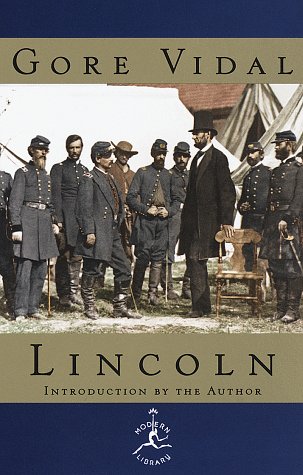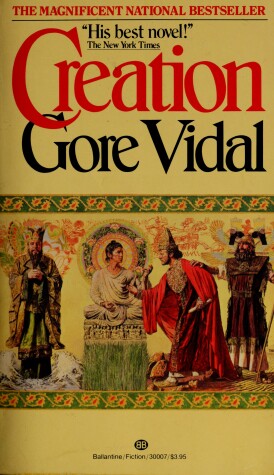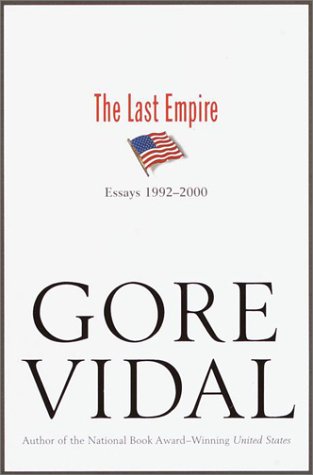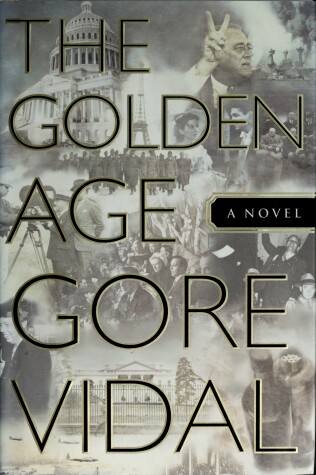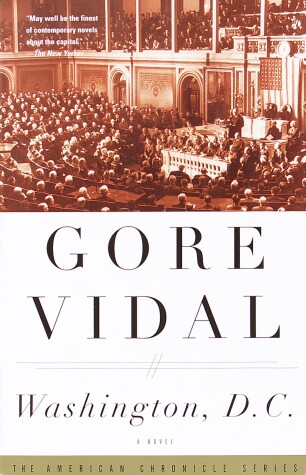Vintage International
13 total works
Jim Willard, former high-school athlete and clean-cut boy-next-door-, is haunted by the memory of a romanctic adolescent encounter with his friend Bob Ford. As Jim pursues his first love, in awe of the very same masculinity he possesses himself, his progresss through the secret gay world of 1940's America unveils surreptitious Hollywood affairs, the hidden life of the military in the Second World War and the underworld bar culture of New York City.
With the publication of his daring thrid novel The City and the Pillar in 1948, Gore Vidal shocked the American public, which has just begun to hail him as their newest and brightest young writer. It remains not only an authentic and profoundly importatnt social document but also a serious exploration of the nature of idealistic love.
With a new introduction by Camille Paglia
"I am Myra Breckinridge, whom no man will ever possess."
So begins the irresistible testimony of the luscious instructor of Empathy and Posture at Buck Loner's Academy of Drama and Modeling. Myra has a secret that only her surgeon shares; a passion for classic Hollywood films, which she regards as the supreme achievements of Western culture; and a sacred mission to bring heteronormative civilization to its knees.
Fifty years after its first publication unleashed gales of laughter, delight, and ferocious dissent ("Has literary decency fallen so low?" asked Time), Myra Breckinridge's moment to instruct and delight has once again arrived.
Gore Vidal's classic novel of Aaron Burr - the man who shot Alexander Hamilton.
In 1804, Colonel Aaron Burr, Vice-President of the United States, shot and killed Alexander Hamilton in a duel. Three years later, on the order of President Thomas Jefferson, he was tried for treason: for plotting to dismember the United States.
Gore Vidal, romping iconoclastically through American history, debunks, in this historical novel of Burr's life, the common and casually held notion of the man as a scoundrel and an adventurer. Instead he appears as one of the 'host of choice spirits' forced to live among coarse, materialistic, hypocritical people, among them Jefferson and Hamilton. Here, the latter appears as a power-hungry 'parvenu' from the West Indies and the former as a semi-literate slave-owning tyrant. American politics, suggests Vidal, had a penchant for the vulgar. Even then.
Veering backwards to the revolution and the early days of the republic, stopping at dinner-parties on the way, and reaching forward to the future, Burr is a novel about treason, both the particular and in general. For what, asks Vidal, really belongs to whom? What properly belongs to the Constitution, to the nation, to the family even, intriguingly, to novelists and historians?
Washington, D.C., is the final installment in Gore Vidal's Narratives of Empire,his acclaimed six-volume series of historical novels about the American past. It offers an illuminating portrait of our republic from the time of the New Deal to the McCar-thy era.
Widely regarded as Vidal's ultimate comment on how the American political system degrades those who participate in it, Washington, D.C. is a stunning tale of corruption and diseased ambitions. It traces the fortunes of James Burden Day, a powerful conservative senator who is eyeing the presidency; Clay Overbury, a pragmatic young congressional aide with political aspirations of his own; and Blaise Sanford, a ruthless newspaper tycoon who understands the importance of money and image in modern politics. With characteristic wit and insight, Vidal chronicles life in the nation's capital at a time when these men and others transformed America into "possibly the last empire on earth."
"Washington, D.C. may well be the finest of contemporary novels about the capital," said The New Yorker, and the Times Literary Supplement deemed it "a prodigiously skilled and clever performance."
